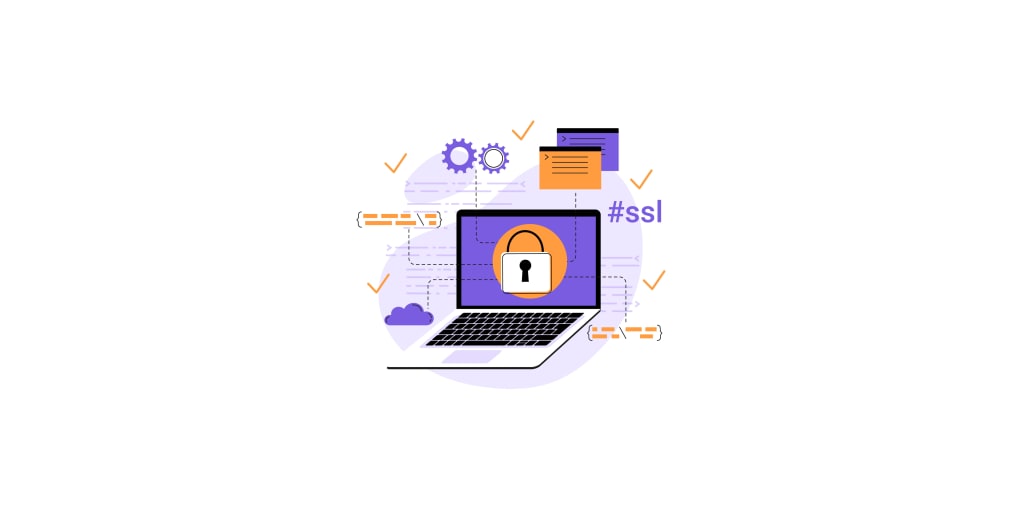Unlocking the Power of SSH Keys: Ensuring Maximum Security for Your Remote Systems
This blog explains what SSH keys are, how they work, and why they are crucial for securing remote systems. It also provides step-by-step instructions on how to generate SSH keys and manage them for maximum security.

Today's digital environment has made security a crucial component of practically everything we do online. This is especially true for employees who deal with servers or oversee distant systems, where sensitive data and vital infrastructure are in danger. SSH Key is one of the most important tools that is used to guarantee that data and systems stay secure. This article will explain what an SSH key is, how it functions, and why it's crucial.
What is an SSH Key?
A technology called SSH (Secure Shell) allows for safe communication between two computers across an unsecured network. In layman's terms, it gives users a safe means to connect to a distant computer across an unprotected network. SSH encrypts the data sent between the two computers using cryptographic techniques to provide a safe connection.
SSH uses public-private key pairs, commonly referred to as SSH keys, as an authentication method to confirm a user's or a system's identity. The two keys that make up an SSH key are a public key and a private key. The local system is where the private key is kept, whereas the distant system is where the public key is kept.
How does SSH Key work?
When an SSH connection is established, the client and the server communicate details about the server's public key. The authorized keys file on the client, which contains a collection of trusted public keys, is then used to verify the server's public key.
The client creates a session key when the server's identity has been confirmed, which is then used to encrypt all of the data sent back and forth between the two systems. Only the server may decode this session key using its private key after encrypting it with its public key.
The server then uses its private key to decode the client's encrypted session key, which it gives back to the client. The session key is used by both the client and the server to encrypt and decrypt any data sent back and forth once it has been encrypted.
Why is SSH Key important?
Compared to other forms of authentication, like passwords, SSH keys provide a high degree of security. These are some explanations of why SSH keys are crucial:
Better Security: As was already said, SSH keys employ cryptographic techniques to provide secure connections between two computers. This makes sure that any data sent between them is safe and can't be accessed or altered by hackers.
Password-free Authentication: SSH keys, as opposed to passwords, do not require the user to provide a password each time they wish to access a distant system. By doing this, you not only save time but also remove the chance of password-based assaults like brute force ones.
Enhanced Access Control: SSH keys provide enhanced access control over passwords. You may designate which users or systems are permitted access to a distant system using SSH keys. This implies that even if an attacker obtains a user's private key, they are unable to access other resources or systems using it.
Key management is simple: Maintaining passwords for several users may be a difficult chore. SSH Keys makes it simple to manage and revoke keys for several users from a single location. This makes sure that access to distant systems is managed and monitored.
How to generate an SSH Key?
You must carry out these easy procedures to create an SSH key:
- Open the terminal on your local system.
- Type the following command: ssh-keygen -t rsa
- You will be prompted to enter a file name and a passphrase. Press Enter to accept the default file name and leave the passphrase blank.
- The key pair will be generated, and the public key will be saved in a file with a .pub extension.
- You can now copy the public key to the remote system using the ssh-copy-id command. For example, ssh-copy-id username@remote_host.
- After copying the public key, you may use the private key to log into the remote system without entering a password.
It's crucial to remember that you shouldn't ever give anybody access to your private key. Your data and systems might be accessed by someone who obtains your private key.
Also, for best security, it's a good idea to regularly change your SSH keys. Creating a new key pair and updating the public key on all the systems where the previous key pair was used is required.
Conclusion
SSH keys are an essential tool for protecting data and distant systems, in conclusion. They provide enhanced security, password-free login, greater access control, and simple key management. The aforementioned methods will make it simple for you to create and maintain SSH keys for your systems and provide optimal security. To stay ahead of any security concerns, keep your private key safe and rotate your keys occasionally.





Comments
There are no comments for this story
Be the first to respond and start the conversation.